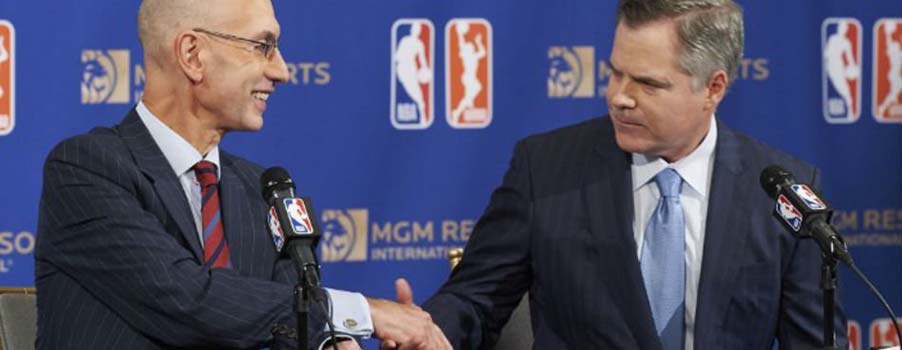The NBA on Tuesday, July 30, announced that it had struck a deal with MGM Resorts International to be its official gambling partner. This partnership, which is the first ever for a sports league and gambling operator marks a crucial step forward for sports betting in the United States especially considering that before the Supreme lifted the ban on sports betting, the leagues had for decades shunned any association with gambling activities.
“This is an industry and an area that we’ve been discussing a lot over the last several years, and of course, with the Supreme Court’s repeal of PASPA, it’s all come to a head,” NBA commissioner Adam Silver said.
Even though the Supreme Court ruling that repealed PASPA is not likely to culminate in a federal gambling bill, the ongoing state-by-state approach for the legalization of sports betting will help the NBA and other leagues to tap into the new revenue stream that acknowledges the sports betting interests in the country. According to the sources close to the partnership, the deal is approximated to be $25 million over three years which may seem small, but the real value for the league may come through the creation of a market for their direct data feed.
MGM Resorts International will also enjoy a number of perks from the partnership. These included the rights to NBA league and team logo, highlights, access to official league data as well as recognition for being an “official gaming partner” of the NBA and WNBA. Using the aforementioned official NBA league data on its betting platforms, MGM will also be able to work with the league to detect and prevent fraud and game-fixing which have plagued both industries for a very long time.
The NHL Also Wants a Piece of the Gambling Action
The leagues have since abandoned the controversial quest for an “integrity fee” but this is not stopping some of them, including the NHL, from candidly and directly pursuing their interests in the gambling scene. According to recent reports, Gary Bettman, the NHL Commissioner, the league hopes to be paid from gambling interests for the sports intellectual properties associated with the league.
“We’ve historically been opposed to extending sports betting on our game, and, emotionally, I don’t think that’s changed. However, it is a fact of life in light of the Supreme Court’s ruling, and it’ll be up to states to decide whether or not they’re going to enact sports betting,” Bettman stated.
“From our standpoint, we believe that whether it’s our intellectual property or data, whether it’s a video of our game, we have important assets. And if somebody is going to avail themselves or want to avail themselves of those assets in order to conduct their business, then we’re going to need to have a negotiation.”

